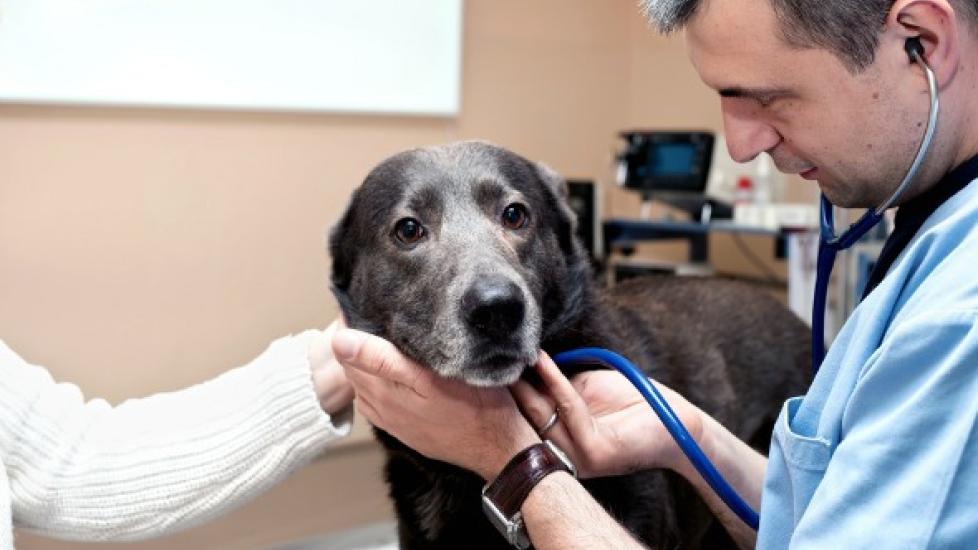Dog Euthanasia: How to Know it’s Time
When faced with any difficult decision, it is best to have as much information as possible to make the right choice. This is definitely true in the case of dog euthanasia. When you adopt a dog, you take on the responsibility of caring for him throughout his entire life. As he ages or if a significant medical problem is encountered, you will have to think about what is best for him and for the rest of the family. In some cases, this will be euthanasia.
Some of the conditions that may necessitate euthanasia include: intense pain that doesn’t respond to treatment, cancer, incurable organ failure (e.g., kidney, liver or heart), severe arthritis, and progressive neurologic disease (e.g., dementia). Often several diseases or conditions are present that in combination lead to suffering.
How will you know when it is time to euthanize your dog? Your veterinarian is the best person to guide you and your family through this process. She will likely ask you to consider your dog’s quality of life by considering the following questions:
Is your dog in pain?
Although we know that dogs experience pain much like humans, it is not always evident to us. Signs of pain in dogs include panting, pacing, lack of appetite, decreased interactions with the family, and grumpiness. There are now many different ways to treat pain, so talking with your veterinarian may be helpful.
Is your dog able to eat, drink and keep himself clean?
Adequate nutrition and hydration is important in maintaining an acceptable quality of life. Furthermore, the ability to get up with minimal assistance, to walk, and to eliminate without a significant mess is usually desirable.
Is your dog happy?
You must consider what makes him happy. If he can no longer go for walks, play with toys, or interact with the family, he may not be enjoying life. If he used to greet you when you came home, but now just lies in one place all the time, he most likely is not a happy dog. If he consistently vomits after each meal, he is likely uncomfortable.
Keep a daily log with the answers to these questions. We’re basically deciding, “Was today a good day?” If he has more bad days than good, his quality of life is unacceptable.
Other factors may contribute to the decision-making process besides a dog’s quality of life. In an ideal world, we would have unlimited finances, time, patience and energy. In reality, this is not the case.
The cost of a major surgery or continued use of expensive medications may financially burden your family. Add in a slim chance of recovery and it may not be feasible to pursue treatment. Some chronic conditions will require extensive time and effort to manage and this may not be realistic for your family.
In some cases, if your dog’s quality of life is good, but your family cannot care for him, there may be other options such as finding him another home. If money is an issue, there may be funds from local rescue groups or charitable funds at your animal hospital to help with costs. If euthanasia is the best option but you cannot afford the procedure, many animal shelters offer this at a low or even no cost.
If you have made the decision to euthanize your dog, you must consider the logistics. Euthanasia typically takes place in the veterinary hospital, but the most peaceful location would often be in your own home. Many veterinarians will make a house call for euthanasia to ensure the best possible situation for everyone involved. If your veterinarian is unable to make a house call, you may be able to find a doctor who performs dog euthanasia at home through this directory.
It helps to understand what happens during the dog euthanasia procedure. Your veterinarian will likely sedate your dog first with an injection of a medication into the muscle or under the skin to reduce any anxiety and discomfort he may be experiencing. Once your dog is relaxed and possibly even asleep, the next step is the injection of euthanasia solution, usually into a vein. Your veterinarian will then listen for your dog’s heart to stop beating, which usually only takes a few minutes. When performed in this manner, dog euthanasia does not hurt.
It is a sad time when we have to consider euthanasia for a beloved dog. Knowing what to expect makes answering the question “Is it time?” a little bit easier.
Help us make PetMD better
Was this article helpful?
